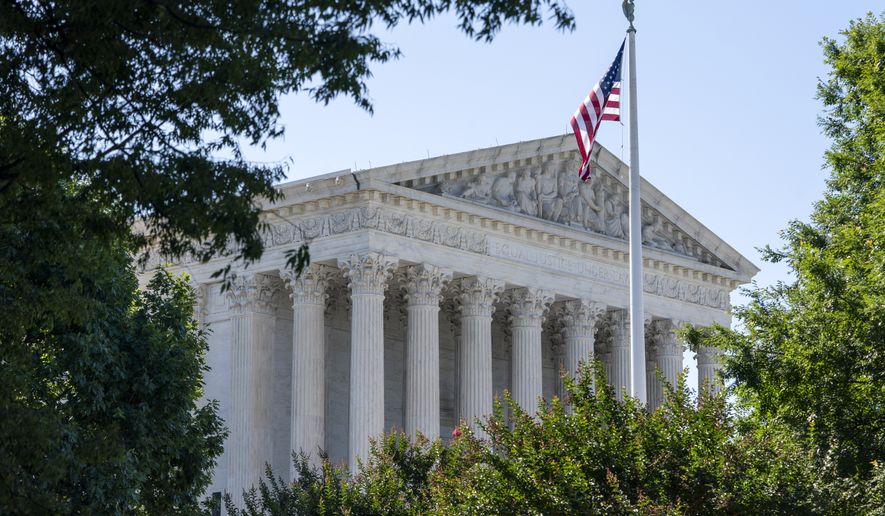The Supreme Court ruled Wednesday that the state of Oklahoma — as well as the federal government — can prosecute non-Indians who commit crimes against American Indians on Indian territory.
The ruling was 5-4, with Justice Neil M. Gorsuch joining the court’s three liberal members.
Justice Brett M. Kavanaugh delivered the opinion for the court, writing that the Constitution gives states authority over all of their territory — including Indian reservations.
“A state prosecution of a non-Indian does not involve the exercise of state power over any Indian or over any tribe. The only parties to the criminal case are the State and the non-Indian defendant,” Justice Kavanaugh wrote.
He was joined by Chief Justice John G. Roberts Jr. and Justices Clarence Thomas, Samuel A. Alito Jr. and Amy Coney Barrett.
Justice Gorsuch wrote a separate opinion, dissenting from the decision by arguing the court is allowing states to commit a power grab over tribes.
“This declaration comes as if by oracle, without any sense of the history,” Justice Gorsuch wrote. “Truly, a more ahistorical and mistaken statement of Indian law would be hard to fathom.”
He was joined by Justices Stephen G. Breyer, Sonia Sotomayor and Elena Kagan.
The case, Oklahoma v. Victor Manuel Castro-Huerta, was a follow-up challenge to a prior decision in which the high court ruled in McGirt v. Oklahoma, barring state prosecution of American Indians in eastern Oklahoma for crimes committed on tribal lands.
The McGirt case resulted in a growing backlog of cases in federal and tribal courts.
Wednesday’s decision didn’t overrule McGirt but addressed some of the growing prosecutorial issues between tribal, state and federal courts in Oklahoma.
The dispute involved a man who was convicted of severely neglecting his 5-year-old stepdaughter. He is non-Indian, but his stepdaughter is an American Indian.
The lower court vacated his conviction after the McGirt ruling, noting that the crime had occurred in Indian country. But the high court’s ruling reverses that lower court’s decision.
About 43% of Oklahoma became Indian country after the McGirt ruling, and as a result 1.6 million more people now live on Indian territory.
The confusion from the McGirt ruling led to chaos for cops and courts in Oklahoma over the past two years, according to law enforcement on the ground.
About half the state’s lands are home to dozens of tribes. The city of Tulsa, which has a population of more than 400,000, sits predominantly on a reservation.
Oklahoma Attorney General John O’Connor said the ruling will help law enforcement protect American Indians and non-Indians in the state.
“Federal prosecutors are only prosecuting one in four felony referrals from law enforcement officers in eastern Oklahoma. Now the State prosecutors can take up the slack and get back to what we have been doing for 113 years. The Biden DOJ predicted a ‘surge’ in crime in eastern Oklahoma in 2023. With this decision, hopefully that surge can be avoided,” Mr. O’Connor said.
• Alex Swoyer can be reached at aswoyer@washingtontimes.com.




Please read our comment policy before commenting.